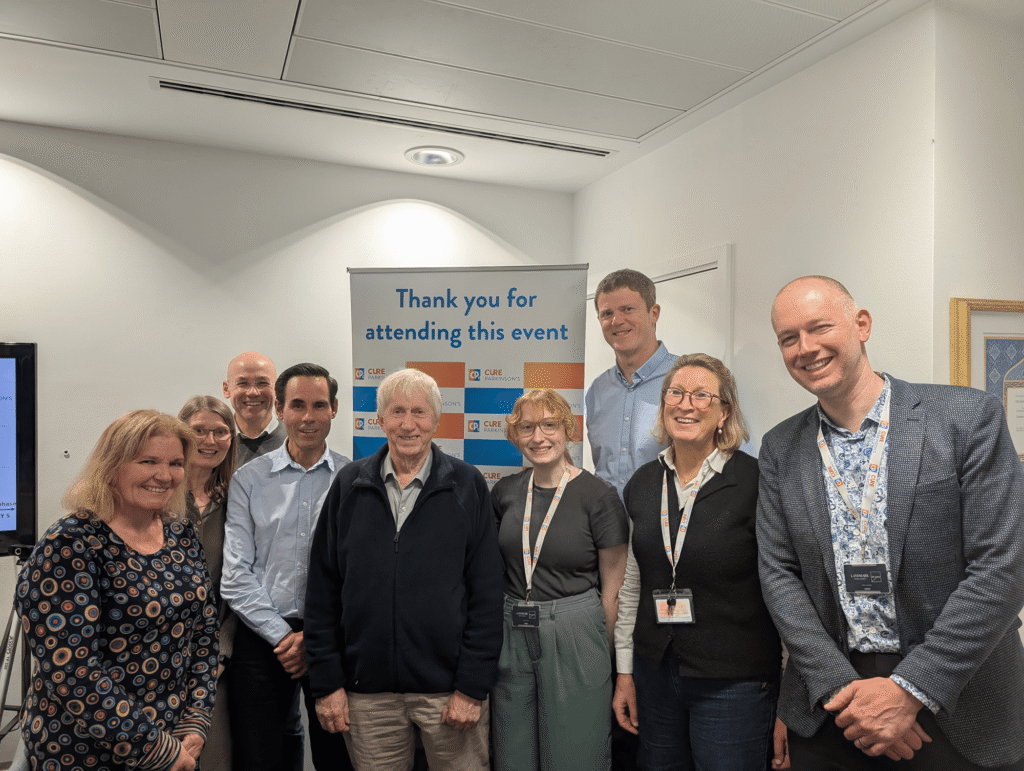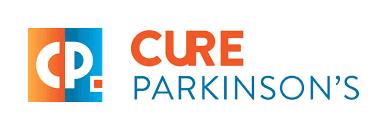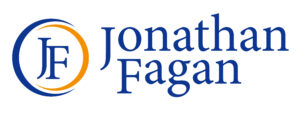In a world where business success often takes centre stage, our 25 years of trading milestone is a little bit different. We decided to celebrate the achievement by giving back. This October, our group of companies, the Ten Percent Group, a family-owned network of UK service businesses based in Wales, marked its 25th anniversary with a donation that carries both heartfelt significance and global impact.
To commemorate 25 years in business, the group’s charitable arm — the Ten Percent Foundation — has donated £25,000 to Cure Parkinson’s, the UK charity dedicated to finding a cure for Parkinson’s disease.
For us, this isn’t just philanthropy; it’s personal.
A Donation For Memory
The Ten Percent Foundation has supported Cure Parkinson’s annually since 2017. This year’s £25,000 donation, however, holds special poignancy. One of the Foundation’s trustees, John Fagan, passed away in 2016 after living with Parkinson’s. His memory continues to inspire the group’s ongoing commitment to the cause.
“This donation means more to us than simply celebrating 25 years in business,” said Jonathan Fagan, founder of the Ten Percent Group. “It honours John’s memory and supports a cause we care about deeply. From the beginning, our goal has been to show that business can be a force for good. Giving 10% of our profits to charity is part of that. But this donation is special – it’s about family, memory, and hope.”
Jonathan and Clare Fagan, founders of the Ten Percent Group, along with trustees Anna Gresty and Jeremy Fagan, recently visited Cure Parkinson’s’ London headquarters. There, they met with the charity’s team to learn more about the research their donation will support.


Supported Project – Probucol and Chlorogenic Acid: Slowing Parkinson’s
The Probucol and Chlorogenic Acid Project is part of Cure Parkinson’s International Linked Clinical Trials (iLCT) Pipeline Research Acceleration Programme. This initiative supports early-stage studies that have the potential to move promising treatments closer to clinical testing for people with Parkinson’s disease. The ILCT programme is essentially a group of international experts who evaluate potential drugs, identify those that look promising and then seek funding to move forwards with clinical trials. The expert panel identified this particular project as being worthy of funding support.
The project, led by Dr Poonam Thakur and her team at the Indian Institute of Science Education and Research in Thiruvananthapuram, began in April 2024. It aims to uncover whether two compounds — probucol and chlorogenic acid — could protect dopamine-producing brain cells from damage, potentially slowing or stopping Parkinson’s progression.
The Ten Percent Foundation donation has gone towards filling a funding shortfall in the project.
Probucol is a medication used to treat high cholesterol. It has been found to potentially reduce inflammation and improve issues with cell energy production. Chlorogenic acid is found in coffee. Apparently researchers have noticed that it helps reduce the build-up of alpha-synuclein, which is a protein that drives the progression of Parkinson’s. Dr Thakur has already concluded that chlorogenic acid is not worth moving forwards into further trials with and is instead focussing on Probucol.
Project Goals
The total cost of the project has been £128,000 and will take 2.5 years. It started in January 2024. The research team is focused on four key objectives:
- Understanding brain penetration – determining whether probucol and chlorogenic acid can successfully cross into the brain and reach the neurons affected by Parkinson’s.
- Testing neuroprotective effects – assessing whether these compounds can prevent or reduce the loss of dopamine neurons, the hallmark of Parkinson’s disease.
- Investigating disease mechanisms – exploring how the drugs may influence biological processes such as inflammation, mitochondrial dysfunction, and protein build-up, all of which contribute to Parkinson’s.
- Exploring sex-based differences – examining whether males and females respond differently to treatment, a factor often overlooked in early research.
The ultimate goal is to provide the vital evidence needed to decide whether Probucol should move into human clinical trials.
Why Probucol (and Chlorogenic Acid)?
Probucol is a cholesterol-lowering drug that has long been used to treat cardiovascular disease. Beyond its original purpose, it has shown strong anti-inflammatory and antioxidant properties — qualities that could help protect neurons from the chronic inflammation and oxidative stress seen in Parkinson’s. It may also help stabilise mitochondria, the tiny energy-producing parts of cells that often malfunction in people with the disease.
Chlorogenic acid, on the other hand, is a naturally occurring compound found in coffee and several fruits & vegetables. Laboratory studies have indicated that it can reduce the toxic build-up of alpha-synuclein, a protein that clumps in the brains of people with Parkinson’s. It appears to enhance autophagy, the cell’s process for clearing out damaged components, potentially helping brain cells stay healthier for longer.
Both compounds are considered low-risk because they already exist in other medical or dietary contexts. This makes them strong candidates for drug repurposing, a research strategy that can accelerate the move from the laboratory to the clinic by focusing on substances already known to be safe in humans.
First CP Project in India
This study is notable for being Cure Parkinson’s first funded project in India, reflecting the charity’s commitment to international collaboration. It is also bridging the gap between preclinical findings and real-world therapies.
If the results confirm that probucol is safe, brain-active, and neuroprotective, it may well become a strong candidate for future clinical trials in people living with Parkinson’s.
Cure Parkinson’s: A UK Charity with a Global Vision
Founded in 2005 by four people living with Parkinson’s, including one diagnosed at just 26 years old, Cure Parkinson’s was born from frustration that research into treatments to slow or halt Parkinson’s was being neglected. A lot of research was being spent on alleviating symptoms. Leading neurological surgeons advised the founders that they were wasting their time looking for a cure.
Two decades later, that determination has evolved into a powerful international movement. The charity has since invested more than £25 million in research projects worldwide, funding work that pushes the boundaries of neuroscience and drug discovery.
Their goal is to find new treatments that can slow, stop, or reverse Parkinson’s. Unlike organisations that focus on symptom relief, Cure Parkinson’s pursues what they call disease-modifying therapies — treatments that target the root causes of the condition.
Parkinson’s: The Facts
Parkinson’s affects around 153,000 people in the UK, and every hour, two more people are diagnosed. It is the fastest-growing neurological condition in the world. While medications can help manage tremors and stiffness, no current therapy can halt the disease’s progression.
The average age of diagnosis is around 60, but up to one in 20 people are diagnosed before 50, with some cases emerging even earlier. The condition affects movement, balance, and coordination, often accompanied by anxiety, fatigue, and cognitive changes.
Yet despite its challenges, hope remains — and it’s fuelled by science.
Cure Parkinson’s has backed groundbreaking international trials, including the International Linked Clinical Trials (iLCT) initiative. This project screens existing, approved drugs to see if they could benefit people with Parkinson’s. Repurposing medicines already deemed safe for other uses means that researchers can bypass years of early testing; accelerating potential treatments to patients much faster.
They are also championing multi-arm, multi-stage (MAMS) clinical trial models — an approach that allows several treatments to be tested simultaneously, saving time, money, and lives.
One thing that came out of our visit to speak with the research team is that Parkinson’s is not necessarily genetically inherited. Studies of identical twins living in similar circumstances have demonstrated that although two people may have genes that point towards being diagnosed with Parkinson’s, it does not follow that this will necessarily be the case.
A Partnership with Purpose
Helen Matthews, CEO of Cure Parkinson’s, expressed deep gratitude for the Ten Percent Foundation’s ongoing commitment:
“We are so grateful for the support from the Ten Percent Group, which they give in honour of John, one of their trustees who passed away with Parkinson’s. Their £25,000 donation to mark their 25th anniversary is especially significant. Their continued support is helping us accelerate research that will stop, slow or reverse Parkinson’s.”
The relationship between Cure Parkinson’s and the Ten Percent Group is an example of how small and medium-sized enterprises (SMEs) can create lasting, global impact.
Clare Fagan reflected on this ethos:
“We are only a small group of companies with a turnover of £1 million. But does it matter? We don’t think so. Whatever size a company is, we can all make a difference to the communities around us through charitable giving.”
The Ten Percent Foundation, established in 2002, channels 10% of the group’s net profits each year into charitable causes. Over 25 years, the Foundation has donated more than £270,000 to projects ranging from UK prison choirs to wildlife ranger programmes in Africa.
The Foundation’s work exemplifies a principle that many large corporations overlook — that consistent, purposeful giving over time can transform lives and communities.
When Business Becomes a Force for Good
The Ten Percent Group is not a giant, sprawling international & faceless conglomerate; it’s a network of practical b2b service providers including Ten-Percent Legal Recruitment, Interim Lawyers, and TP Transcription Limited. Its work spans legal recruitment, locum solicitor provision, and professional transcription — but at its heart lies a steadfast belief in business ethics and community contribution.
In an era when corporate responsibility can feel more than a little bit fake at times, we like to think that the Ten Percent Group offers a genuine model of “profit with purpose.” Our donations demonstrate that doing well and doing good are not opposing goals.
Cure Parkinson’s: Milestones
The £25,000 donation coincides not only with the Ten Percent Group’s 25th anniversary but also with Cure Parkinson’s 20th year.
Cure Parkinson’s Objectives
- Faciliate a cure for Parkinson’s
- Make an impact on the lives of people with the condition
- Act as a catalyst in the research of Parkinsons
- Build a network of experts involved
- Educate the public
Here are a few achievements from Cure Parkinson’s’ two decades of impact:
- £25 million invested in pioneering research worldwide.
- 100+ research projects supported across the globe.
- 26,000+ online community members connected via forums and discussions.
- Backing from music legends Black Sabbath, who pledged part of the proceeds from Ozzy Osbourne’s final concert to Parkinson’s research.
- Leadership in innovative trial designs, including the EJS ACT-PD and SLEIPNIR studies, which could redefine how new drugs are tested.
A Shared Vision of Hope
Both the Ten Percent Foundation and Cure Parkinson’s share a belief in perseverance — that meaningful change takes time, commitment, and a refusal to accept “good enough.”
For Cure Parkinson’s, that means never settling for symptom relief when a cure might be possible. For the Ten Percent Group, it means using business as a tool for social progress.
Cure Parkinson’s continues to push scientific frontiers, with new clinical trials and research collaborations expanding across Europe and beyond. Their mission — to conquer Parkinson’s in our lifetime — is ambitious but not impossible.
Every donation, from individuals to SMEs like the Ten Percent Group, accelerates that mission. Each pound funds the next study, the next breakthrough, the next glimmer of hope for people living with Parkinson’s.
Ten Percent Group of Companies







